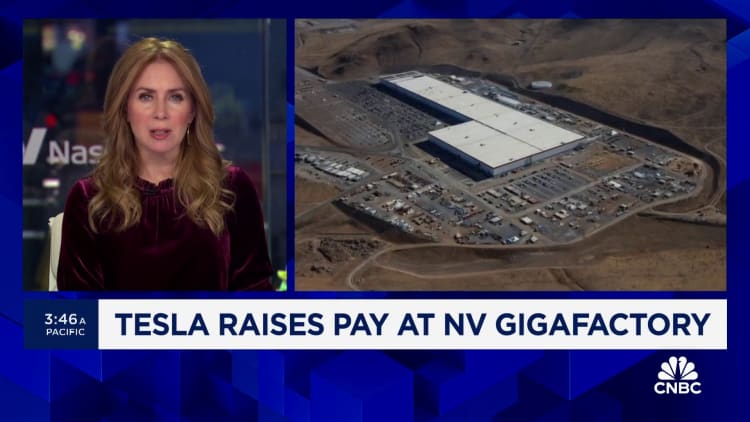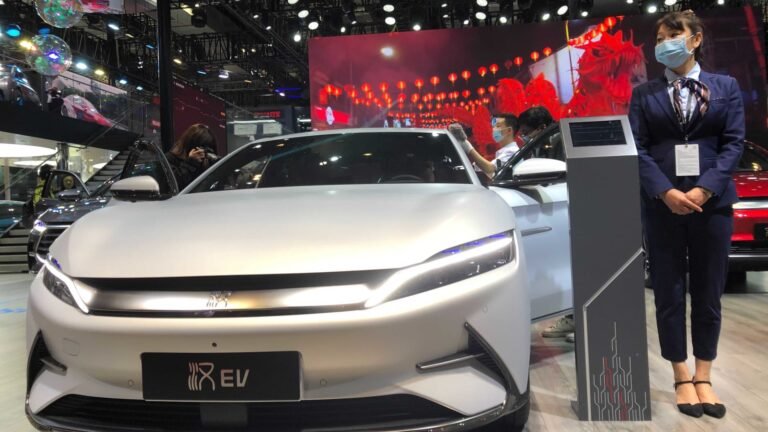BYD’s Han electric car, pictured here at the 2021 Shanghai Auto Show, is one of the most popular new energy vehicles in China.
Evelyn Cheng | CNBC
BEIJING – You’re here reduces the prices of its electric cars in China by more than BYD did so for its flagship Han sedan, according to an analysis published Wednesday by the American company JL Warren Capital.
Tesla cut the price of its Model 3 by 6% from December last year and that of the Model Y by 11% during the same period, said Junheng Li, CEO and research director of JL Warren Capital, in the report.
BYD’s Han only saw its price drop 5% during that period, she said.
The Han, the company’s premium electric sedan, sells in a similar price range to Tesla cars, at over 200,000 yuan ($28,000). Most other BYD cars cost a lot less.
The report shows that BYD increased its promotions throughout the year, reducing the price of some mainstream models by 10% to 17%. “Double-digit discounts are a common promotion by (original equipment manufacturers) to boost sales and achieve the sales target,” Li said.

High-end electric car startup Nio Also lower prices this yearalthough he initially tried hard to avoid getting drawn into an industry price war.
“Unlike in the EU or the US, residual values do not appear to play a significant role in Chinese consumers’ purchasing decisions,” HSBC analysts said in a Dec. 4 report on the auto industry . “This may be the reason why price competition is so severe in China compared to the EU and the US.”
Thanks in part to government supportpenetration of new energy vehicles, which include battery cars and hybrid cars, has surged to well over a third of new passenger cars sold in China.
Li expects the penetration rate to be around 40% next year, while electric car sales will increase by 20%, a slowdown from a 35% increase in 2023.
Already for this year, the industry’s biggest automakers had an “overly ambitious target” of 93% sales growth, Li said. She pointed out that among China’s top 13 electric vehicle makers, only Tesla and Li Auto are expected to achieve their respective sales targets for the year.
This signals competition is about to get fiercer in China, the world’s largest auto market, which could lead to potential industrial waste.
“New models are boosting demand for electric vehicles, but at the cost of intensifying the price war as the market is flooded with inventory of ‘obsolete’ models,” Li said, noting that the development cycle of new cars in China has been reduced to one or two. years compared to about three years previously.


